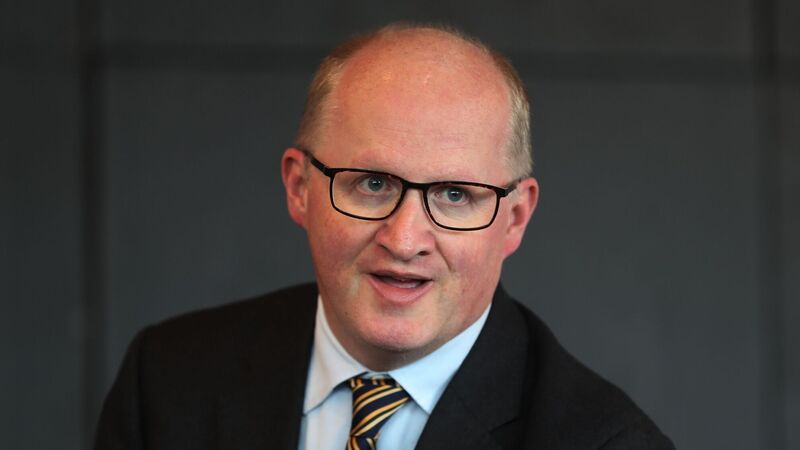ECB chief economist adamant eurozone inflation will fall despite new record high

ECB chief economist Philip Lane has insisted that 'inflation pressures will ease over the course of this year'.
Eurozone inflation will fall this year, despite new figures showing record-high prices across the region, ECB chief economist Philip Lane has said, in an attempt to dispel the notion of rising pressure on the bank to raise interest rates.
Inflation across the eurozone hit a record 5% in December after rising unexpectedly from 4.9% in November, in excess of the 4.8% economists had predicted.
The new figure marks a fresh high for the 19-country currency bloc, and hits a level more than twice the ECB’s 2% target.
Mr Lane reiterated that the current drivers of inflation are temporary, and that the period from 2020 to 2022 was part of a "pandemic cycle in inflation" and should not be compared to historical norms.
"This year inflation is going to come down, [but] it's going to be above where we want it to be in the long term," Mr Lane said, reiterating the ECB's projections that inflation will be above its target for 2022 as a whole before falling "a little bit below" target in 2023 and 2024.
While the ECB projections see inflation back at 1.9% by the fourth quarter of the year, a long list of influential policymakers question this narrative, warning that risks are skewed towards higher figures, and that above-target readings could persist into next year.
Some policymakers sought a greater acknowledgement of inflation risks at an ECB meeting last month, but were rebuffed by Mr Lane in an unusually robust debate, according to sources close to the debate.
Mr Lane said that while high energy prices are a major concern, supply pressures should ease in the oil and gas markets this year.
He added that the case for altering the ECB's interest rate policy "is not there", given it thinks high inflation is not going to be durable.
Eurozone bond yields rose on the back of the unexpected inflation jump, and jobs data from the US that showed less healthy employment figures than was anticipated.
The data releases add to pressure on bond markets, which sold off heavily this week after minutes from the US Federal Reserve's December meeting on Wednesday showed some policymakers want to move even faster to tighten policy, including by shrinking the Fed's $8tn-plus balance sheet.
“Despite a bumpy road ahead, the big picture is for inflation to end over the coming months,” said Nicola Nobile, chief Italian economist at Oxford Economics.
Energy, however, remains a headache. Natural gas prices rose again this week after Russia curbed deliveries to western Europe.
The most recent CSO figures had Irish inflation running at 5.3%. Rising prices at record levels are having “a major impact on workers and families”, Sinn Féin social protection spokesperson Claire Kerrane said.





